Top 20 Online Child Development Degrees

Find your degree
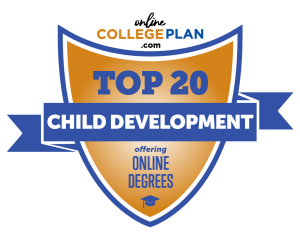
In the field of education, there is a persistent and growing demand for professionals specializing in child development. And as the digital era unfolds, online degree programs have become a convenient and flexible way to embark on a rewarding journey in understanding and nurturing the minds of the future. This article explores the top 20 online child development degrees, curated to guide prospective students towards programs that offer quality education and a pathway to making a meaningful impact in the lives of children.
First, let’s look at the schools we’ve ranked as having the best online programs in early childhood development. Further on, we’ll delve into the remaining 15 schools on our list and the methodology used to rank them. Additionally, we will highlight potential careers that can be pursued with a degree in early childhood development and the associated earning potential.
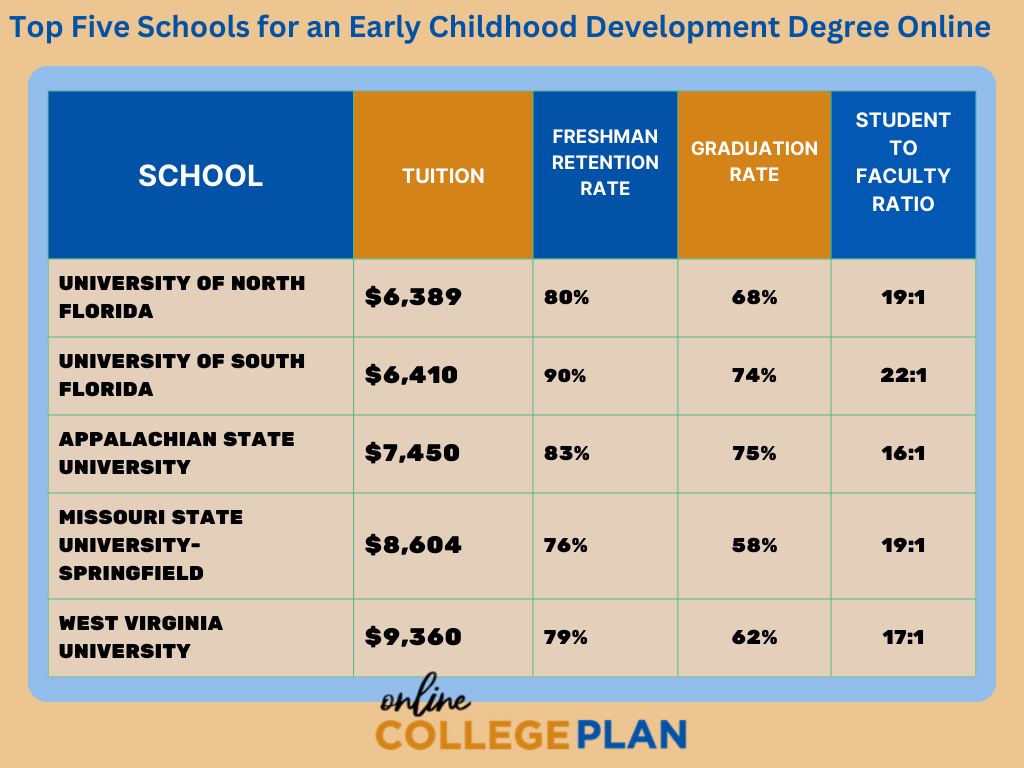
#1 University of North Florida
Jacksonville, Florida
Bachelor of Arts in Education – Early Childhood Development
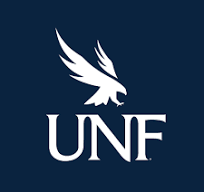
The top online child development program on our list is offered through the University of North Florida (UNF). UNF is known for its commitment to sustainability, global engagement, and innovative programs. And it provides its 16,406 students with a dynamic and personalized learning experience. UNF’s affordability puts it at #1 on our list, but the 80% retention rate is also impressive.
The College of Education and Human Services at UNF offers an online Bachelor of Arts in Education with a concentration in Early Childhood Development. While it does not provide certification for state licensure, it does equip graduates with a strong foundation for thriving in the early childhood sector. Field placements, integral to the degree, can conveniently be fulfilled locally or at your current workplace. With a diverse array of electives—13 in total—students can personalize their program, selecting four to delve into.
All students undertake three mandatory practicum hours regardless of their specialization, ensuring a comprehensive and practical learning experience.
Accreditation: Southern Association of Colleges and Schools, Commission on Colleges
Undergraduate Tuition: $6,389

#2 University of South Florida
Tampa, Florida
Master of Science in Child & Adolescent Behavioral Health
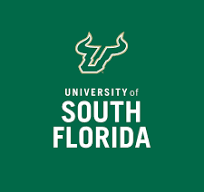
Founded in 1956, the University of South Florida is a pioneering public space-grant research institution and the first university conceptualized and constructed in the 20th century. As Florida’s fourth-largest university, it proudly serves a student body of 49,600. Across its 14 constituent colleges and schools, the university offers a diverse range of degree programs, encompassing associate, bachelor’s, master’s, and doctoral levels.
USF’s fully online, non-clinical Master of Science Program in Child & Adolescent Behavioral Health (CABH) equips professionals to make a positive impact in public and nonprofit agencies and schools. Students can choose from thesis or non-thesis options, the latter being the Applied Track, emphasizing practical experience with six credits of fieldwork instead of thesis research. Four concentrations are offered in:
- Youth & Behavioral Health
- Research & Evaluation
- Leadership in Child & Adolescent Behavioral Health
- Developmental Disabilities
Accreditation: Southern Association of Colleges and Schools, Commission on Colleges
Undergraduate Tuition: $6,410

#3 Appalachian State University
Boone, North Carolina
Bachelor of Science in Child Development

Appalachian State University, established in 1899, is a public university providing programs from the bachelor’s to doctorate levels. The university enrolls approximately 20,436 students and offers diverse undergraduate and graduate majors. Organized into nine colleges and schools, App State also facilitates distance learning opportunities through satellite campuses and online platforms.
Appalachian State University provides a distance learning option for child development through its Bachelor of Science in Child Development program, encompassing the Birth through Kindergarten age range. Students have the flexibility to transfer nearly half of the required credits. This part-time program is entirely accessible online, and upon completion, graduates obtain a North Carolina Birth through Kindergarten (BK) teacher licensure. This license qualifies individuals to teach in both regular and special education settings.
App State also features a Child Development (BS) – Family and Child Studies. This program does not lead to licensure. However, graduates will be prepared to work with children and adolescents in non-public school settings and agencies.
Accreditation: Southern Association of Colleges and Schools, Commission on Colleges
Undergraduate Tuition: $7,450

#4 Missouri State University-Springfield
Springfield, Missouri
Master of Science in Child Life Studies
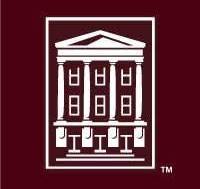
Missouri State University boasts the second-largest enrollment among colleges in the state, currently catering to 22,535 students. Established in 1905 as a Normal School, MSU has evolved into a comprehensive educational hub. The university’s commitment to academic excellence and diverse programs has contributed to its role in shaping Missouri’s educational landscape.
Missouri State Outreach provides online learning opportunities to MSU’s students. MSU’s online child development degree is a graduate-level program, a Master of Science in Child Life Studies. This advanced degree prepares graduates for certification as child life specialists.
This is a research-intensive program that will help students understand existing research and foster an environment to conduct their own. All of the coursework is available online. However, students also have the option to attend some classes face-to-face if they would like.
Accreditation: Higher Learning Commission
Undergraduate Tuition: $8,604

#5 West Virginia University
Morgantown, West Virginia
Bachelor of Science in Child Development and Family Studies

West Virginia University was established in 1867 as a public land and space-grant research institution. Serving 24,741 students, WVU maintains an impressive 17 to 1 student-to-faculty ratio. The university’s strong commitment to research has ranked it as a Research University (Highest Research Activity) – R1 – in the Carnegie Classification of Institutions of Higher Education.
The online Bachelor of Science in Child Development and Family Studies at WVU offers flexibility, requiring only CPR/First Aid training, certifications, and field experience. These can be conveniently completed at an approved location near you. Aligned with the National Association for the Education of Young Children standards, this program ensures a high-quality education. Graduates are equipped with the skills and knowledge necessary for success in the dynamic field of child development.
Students can choose between two impactful areas of emphasis: Preschool Birth to Age 4, opening doors to Pre-K certification, or Child Development without specific certifications. Graduates can explore diverse career paths, including roles as School Social Workers or various levels of elementary school teaching.
Accreditation: Higher Learning Commission
Undergraduate Tuition: $9,360

Now, let’s examine the remaining 15 programs we’ve ranked for the best online early childhood development degrees. When choosing the right online early childhood development program, it is essential to consider factors such as accreditation, curriculum, faculty expertise, flexibility, and opportunities for practical experience. Ultimately, the right program for you will be the one that best meets your academic and career goals.
#6 University of Nebraska-Lincoln
Lincoln, Nebraska
Master of Education in Special Education
Master of Arts in Special Education

The University of Nebraska-Lincoln is the state’s inaugural public land-grant research university. It also has the distinction of being the largest within Nebraska’s university system. Established in 1869, it serves 23,805 students across 275 diverse programs and is organized into eight colleges. The Lincoln campus additionally hosts programs from other institutions within the University of Nebraska System, solidifying its position as a dynamic center for higher education.
UNL Online presents an array of advanced degrees and certificates in child development, providing graduate-level opportunities. Prospective students can opt for either a Master of Education or a Master of Arts in Special Education. The online offerings include three specializations: a Deaf and Hard of Hearing track, an Early Childhood Special Education track, and a Visual Impairments track.
The Visual Impairments track involves some in-person sessions during the summer semester. However, the rest of the programs and coursework can be conveniently completed online. Alternatively, other programs are offered in a blended format, requiring partial on-campus attendance.
Accreditation: Higher Learning Commission
Undergraduate Tuition: $9,872
UNL takes pride in counting Warren Buffett, Johnny Carson, and Tommy Lee among its distinguished alums. Also, three UNL graduates have achieved the prestigious honor of becoming Nobel Prize winners.
#7 North Dakota State University
Fargo, North Dakota
Bachelor of Science in Human Development and Family Science

North Dakota State University is the colloquial title for the esteemed North Dakota State University of Agriculture and Applied Sciences. Located in Fargo, this public institution has been a beacon of educational excellence since its inception in 1891. The university is a dynamic academic hub, offering diverse opportunities to its flourishing community of 12,242 students.
NDSU’s Bachelor of Science in Human Development and Family Science with a concentration in Child and Adolescent Development is a great online option in this area of study. This program focuses on the development of children and young adults and their interactions with their families and the greater society. Students will learn the skills they need to promote child health and protection, and understand and meet the needs of older children.
This degree track can be taken full-time, half-time, or part-time. Enrolling in the full-time program spans four years. However, for those aiming for a quicker path, condensing it to three years is possible by either increasing the number of credits per semester beyond the standard 15 or making use of summer semesters.
NDSU stands out as offering a highly flexible online experience. Ashton Sagaser is a student at NDSU who states: “I was working 40 hours a week while completing all of my credits. Asynchronous classes gave me the freedom and availability to earn an income to put towards school while discovering a whole new interest of mine.”
Accreditation: Higher Learning Commission
Undergraduate Tuition: $10,992
#8 Texas Tech University
Lubbock, Texas
Bachelor of Science in Human Sciences in Youth Development
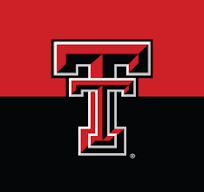
Texas Tech University is a prominent public research institution and the flagship school of the Texas Tech University System. Its roots trace back to its establishment as Texas Technical College in 1923. With a student body of 40,378, it proudly ranks as the sixth-largest university in the state. Offering an extensive array of over 150 courses of study, the university has evolved to encompass 13 colleges and schools, fostering a dynamic academic landscape. In its pursuit of knowledge, Texas Tech also operates 60 research institutes, contributing to its reputation as a hub of innovation and intellectual exploration.
TTU Online is committed to enhancing educational accessibility through its comprehensive array of fully online degree programs. The school’s online Bachelor of Science in Human Sciences strikes a harmonious balance between autonomy and structured learning. The Youth Development concentration earns TTU its place on our list.
Within the human sciences bachelor’s program, students shape their academic journey around three distinct areas of concentration, aiming to accumulate a minimum of 18 credits in each specialized field. The opportunity to fulfill some of these requirements with previously-earned credits adds a valuable layer of flexibility.
Accreditation: Southern Association of Colleges and Schools, Commission on Colleges
Undergraduate Tuition: $11,852
#9 The University of Alabama
Tuscaloosa, Alabama
Bachelor of Science in Early Childhood Education

The University of Alabama, located in Tuscaloosa is the oldest public university in Alabama, founded in 1820. It is also the state’s largest public university, with a diverse student body of 38,644. Comprising 13 colleges and schools, the university provides diverse academic offerings, including bachelor’s, master’s, and doctoral degrees. Notably, it is recognized for its contributions as a sea- and space-grant research institution, further enriching its academic legacy.
The University of Alabama provides online programs under the umbrella of Bama By Distance, offering an array of options for those aspiring to pursue a career in child development. This includes the Bachelor of Science in Early Childhood Education with a concentration in Early Child Development, available entirely online.
The comprehensive curriculum delves into the physical, social, emotional, and cognitive aspects of young childhood development while enhancing understanding of parent-child relationships. Notably, the program incorporates a fantastic internship, ensuring hands-on experience and recognition from the National Association for the Education of Young Children.
Accreditation: Southern Association of Colleges and Schools, Commission on Colleges
Undergraduate Tuition: $11,940
#10 University of Washington-Seattle
Seattle, Washington
Bachelor of Arts in Early Care & Education
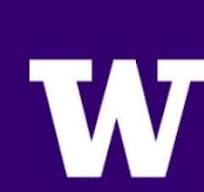
The University of Washington-Seattle is the flagship campus of the UW system. Established in 1861, it’s one of the oldest universities on the West Coast, enrolling a diverse student body of 52,319. With annual research funding of approximately $1.2 billion, UW boasts nearly 150 departments, enabling students to pursue bachelor’s, master’s, and doctoral degrees across a wide array of disciplines.
Tailored to accommodate a busy schedule and lifestyle, the 100% online Bachelor of Arts in Early Care & Education offers full-time and part-time enrollment flexibility. This comprehensive program integrates academic theory, cutting-edge research, and practical training, providing a holistic understanding of child development to prepare you for diverse professional paths.
Students can choose the Core Pathway for social work or child protective services roles. Or they can opt for the Teaching & Learning Pathway for an educational setting like preschool. The program’s structure caters to your specific career aspirations. Typically completed in two years by full-time students, this degree opens doors to future educational pursuits.
In the field of education, there is a persistent and growing demand for professionals specializing in child development. And as the digital era unfolds, online degree programs have become a convenient and flexible way to embark on a rewarding journey in understanding and nurturing the minds of the future. This article explores the top 20 online child development degrees, curated to guide prospective students towards programs that offer quality education and a pathway to making a meaningful impact in the lives of children.
Accreditation: Northwest Commission on Colleges and Universities
Undergraduate Tuition: $12,242
Nobel Prize
University of Washington researchers Dr. Alan Hodgkin and Dr. Andrew Huxley made groundbreaking discoveries about how nerve cells send signals, earning them a Nobel Prize in 1963.
#11 Oregon State University
Corvallis, Oregon
Bachelor of Science in Human Development and Family Sciences
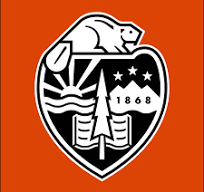
Oregon State University holds a unique status as one of just three universities in the nation designated as a land, sea, space, and sun-grant research university. And it is renowned for its unwavering commitment to cutting-edge research. Established in 1868, OSU offers a rich tapestry of academic opportunities, featuring over 200 undergraduate degrees and a comprehensive array of master’s and doctoral programs.
OSU’s e-campus provides a range of degree options, including the outstanding Bachelor of Science in Human Development and Family Sciences, focusing on Child Development. Through this specialized program, students delve into the various stages of development from infancy to adulthood, laying a robust groundwork for careers in early childhood programs or classrooms. They acquire strategies to support the developmental needs of young children in early childhood settings.
The program features an entirely online format, offering flexibility and four start dates throughout the year.
Accreditation: Northwest Commission on Colleges and Universities
Undergraduate Tuition: $12,664
#12 Washington State University
Pullman, Washington
Bachelor of Arts in Human Development: Childhood Education

Situated in Pullman, Washington, Washington State University is a large, public land-grant research institution. Established in 1890, WSU has thrived as an academic cornerstone, blending tradition with innovation. Boasting a vibrant community of 27,539 students, the university maintains an intimate student-to-faculty ratio of 15 to one. WSU proudly offers a vast range of bachelor’s, master’s, and doctoral degrees through its 12 constituent colleges and a graduate school.
Washington State University’s Global Campus offers over 50 online degrees and certificates. Among them is the Bachelor of Arts in Human Development, specializing in Early Childhood Education. Key courses within this degree track encompass Child Development, Adolescent Development, and Adult Development.
Upon completion of the early childhood development concentration, certification is available exclusively to Washington residents. Students outside of Washington are advised to consult their home state regarding any supplementary requirements for certification.
Accreditation: Northwest Commission on Colleges and Universities
Undergraduate Tuition: $12,701
#13 Colorado State University-Fort Collins
Fort Collins, Colorado
Bachelor of Science in Human Development and Family Studies – Early Childhood Professions

Colorado State University is a public land-grant research institution, with its primary campus and flagship located in Fort Collins, Colorado. The university serves 33,403 students and is organized into nine colleges, each contributing to its academic richness. It also oversees various cutting-edge research institutes.
CSU’s fully online Bachelor of Science in Human Development and Family Studies is meticulously designed for maximum adaptability. Courses within the Early Childhood Professions concentration are strategically structured to equip students for diverse careers in early childhood education. This includes professional roles involving children in various settings, such as healthcare environments and community agencies.
With a targeted emphasis on early childhood development from birth to eight years old, this 120-credit program offers a completion timeline that fluctuates based on the intensity of study and the individual’s prior coursework.
Accreditation: Higher Learning Commission
Undergraduate Tuition: $12,874
#14 Central Michigan University
Mount Pleasant, Michigan
Bachelor of Applied Arts in Early Child Development and Learning
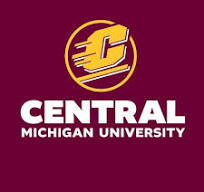
Located in Mount Pleasant, Michigan, Central Michigan University is a dynamic public research institution with roots dating back to its establishment in 1892. Since its inception, CMU has evolved into a formidable university, securing a position among the top 100 largest in the nation. The university currently boasts a diverse enrollment of 14,557 students, with 27% participating in fully online programs. CMU provides a total of 200 programs spanning undergraduate, master’s, specialist, and doctoral levels, many of which have garnered national acclaim for their exceptional academic quality.
CMU presents an outstanding online option with its Bachelor of Applied Arts in Early Child Development and Learning, designed to meet the exacting standards set forth by the National Association for the Education of Young Children. As part of the program’s flexibility, students can select an online minor, with options including Coaching, Geography, Political Science, and Psychology. This proves particularly advantageous for individuals considering further education in child development.
The program adheres to the standards set by the Michigan Department of Education for teacher licensure. However, it’s essential to recognize that each state maintains distinct licensure requirements. Be sure to check with the state of residence for any additional prerequisites.
Accreditation: Higher Learning Commission
Undergraduate Tuition: $13,650
#15 University of Minnesota-Twin Cities
Minneapolis, Minnesota
Master of Arts in Applied Child and Adolescent Development
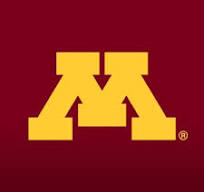
The University of Minnesota-Twin Cities, the flagship of the University of Minnesota System, is a public research institution located in Minneapolis and Saint Paul. Recognized as a Doctoral Research University with the Highest Research Activity and a member of the prestigious Association of American Universities, it holds the esteemed status of a Public Ivy. With an impressive 21 programmatic accreditations spanning various fields, the university offers degrees at the bachelor’s, master’s, and doctoral levels, along with several certificate options. The school enrolls 54,955 students across 19 academic divisions, and over 20% are engaged in online coursework.
UMN Online offers a fully online Master of Arts in Applied Child and Adolescent Development program with a unique non-thesis track. Rather than conducting research and presenting a thesis, this option emphasizes practical experience through fieldwork at a location near you. The program equips students with the skills to apply developmental science in addressing the needs of children and adolescents within advocacy, community, and healthcare settings. The available concentrations include:
- Infant and Early Childhood Mental Health – covers infant observation, prevention, intervention, and more. This can lead to careers in psychology, nursing, early care education, etc.
- Child Life – prepares graduates for certification; it includes several relevant courses and requires a 600-hour clinical internship.
- Individualized Studies – helpful to students whose career goals intersect child development but don’t fit perfectly into one of the predesigned tracks.
Accreditation: Higher Learning Commission
Undergraduate Tuition: $15,859
#16 University of Massachusetts Amherst
Amherst, Massachusetts
Bachelor of Arts in Children’s Learning and Development

The University of Massachusetts Amherst is the flagship institution within the University of Massachusetts System. Located in Amherst, it’s the largest public university in New England, catering to a vibrant community of 32,229 students. It is also distinguished as a Research University with the Highest Research Activity, as bestowed by the Carnegie Foundation. UMass Amherst traces its roots back to its founding in 1863 as Massachusetts Agricultural College.
UMass Amherst’s University Without Walls offers an online Bachelor of Arts in Children’s Learning and Development. The program’s courses are strategically crafted to enhance skills, catering to various passions such as education, child advocacy, youth and family programming, or administration.
Students can bring in up to 100 credits, and there is an option to earn college credit based on pertinent past experiences. The program is administered asynchronously, accommodating both full and part-time schedules.
Accreditation: New England Commission of Higher Education
Undergraduate Tuition: $16,952
#17 Pennsylvania State University
University Park, Pennsylvania
Bachelor of Science in Human Development and Family Studies
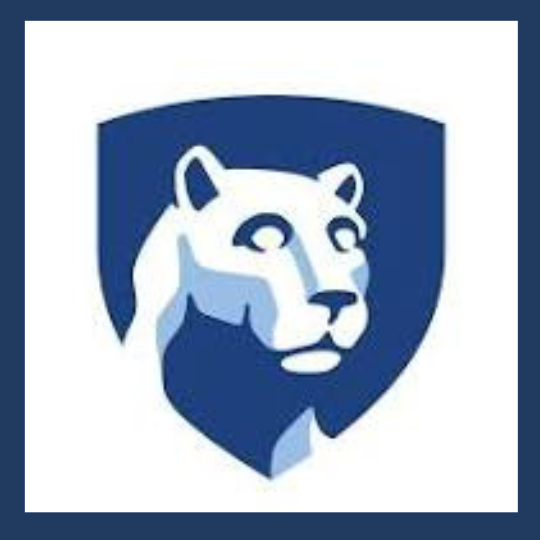
Pennsylvania State University is one of the only public universities to be a land, sea, space, and sun-grant research university. It is the flagship university of the state university system and one of the largest universities in the nation. The main campus serves 50,028 students and offers degrees at every level through its 18 constituent colleges and schools. Penn State is also one of the original Public Ivies. The university offers almost 200 majors and is considered a research university with Very High Research Activity by the Carnegie Foundation.
PennState World Campus offers a Bachelor of Science in Human Development and Family Studies, emphasizing a distinguished education that aligns with students’ passions and purposeful career aspirations. Complementing this program, students can pursue various certificates, with the Undergraduate Certificate in Children, Youth, and Family Services being particularly pertinent.
This fully online and asynchronous degree also incorporates an Applied Learning component, mandating an internship and field experience thoughtfully designed to be completed within one’s local community.
Accreditation: Middle States Commission on Higher Education
Undergraduate Tuition: $19,835
#18 Fresno Pacific University
Fresno, California
Bachelor of Arts in Early Childhood Development
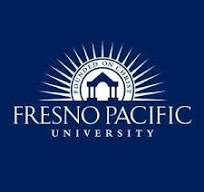
Fresno Pacific University is a Christian liberal arts institution founded in 1944. Currently serving nearly 3,032 students, the university offers a diverse range of degree programs at the associate, bachelor’s, and master’s levels. With over 100 areas of study, students can explore their academic passions through the university’s five organized schools.
Fresno Pacific University’s online Child Development degree offers a comprehensive Bachelor of Arts in Early Childhood Development. The program is crafted to immerse graduates in the child’s environment. And it equips professionals with the diverse skills needed to nurture their growth. The tuition includes an iPad, enhancing the academic experience, while the entirely online coursework eliminates the need for campus commutes.
This Child Development degree is approached from a Christian perspective and prepares graduates for roles in teaching, childcare, social work, school psychology, and children’s ministry. Notably, FPU enables an accelerated graduation, taking just 18 months from the start date to graduation for students with two years of post-secondary experience.
Accreditation: WASC Senior College and University Commission
Undergraduate Tuition: $34,188
#19 Point Loma Nazarene University
San Diego, California
Bachelor of Arts in Child and Adolescent Development

Located in San Diego, California, Point Loma Nazarene University is a distinguished private Christian liberal arts college with roots tracing back to 1902. It holds a unique position as one of only eight institutions in the United States associated with the Church of the Nazarene. PLNU offers a diverse academic landscape with over 60 areas of study and grants degrees at the bachelor’s, master’s, and doctoral levels. The university proudly enrolls 4,319 students, fostering a vibrant and enriching educational community.
The online Bachelor of Arts in Child and Adolescent Development at PLNU can be completed in just 15 months through a unique blended format that combines online coursework with essential on-campus instruction. This comprehensive program delves into complex social environments, dynamic family structures, typical and atypical development timelines, and more, providing students with a broad foundation for building a successful career.
While requiring some time on the physical campus, the program prioritizes flexibility to accommodate various schedules and commitments.
Accreditation: WASC Senior College and University Commission
Undergraduate Tuition: $41,100
#20 University of La Verne
La Verne, California
Master of Science in Child and Adolescent Development
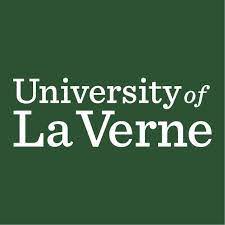
The University of La Verne is a distinguished private non-profit institution established in 1891. With a comprehensive range of programs from bachelor’s to doctorate degrees, the university caters to a student body of 5,662. In addition to its rich history and academic offerings, the University of La Verne is known for its commitment to community service, fostering a culture of engagement and social responsibility.
The University of La Verne offers a graduate-level degree in child development: a Master of Science in Child and Adolescent Development. This program is designed to enhance the expertise of elementary and secondary education teachers and other professionals. Students will deepen their understanding of the physical, intellectual, social, and emotional development of young children or adolescents.
While the online option is exclusively available to California residents, on-campus requirements offer flexibility through evening or weekend classes. This allows those already engaged in their careers or other commitments to seamlessly integrate the program into their busy lifestyles.
Accreditation: WASC Senior College and University Commission Undergraduate Tuition: $47,000
What Can You Do with an Early Childhood Development Degree?
Early childhood development is far more than just a field of study; it is a profound commitment to shaping the future by nurturing the very foundations of human potential. From encouraging young minds to advocating for the well-being of our youngest citizens, here are just a few exciting and diverse career paths that open up when you possess an early childhood development degree.
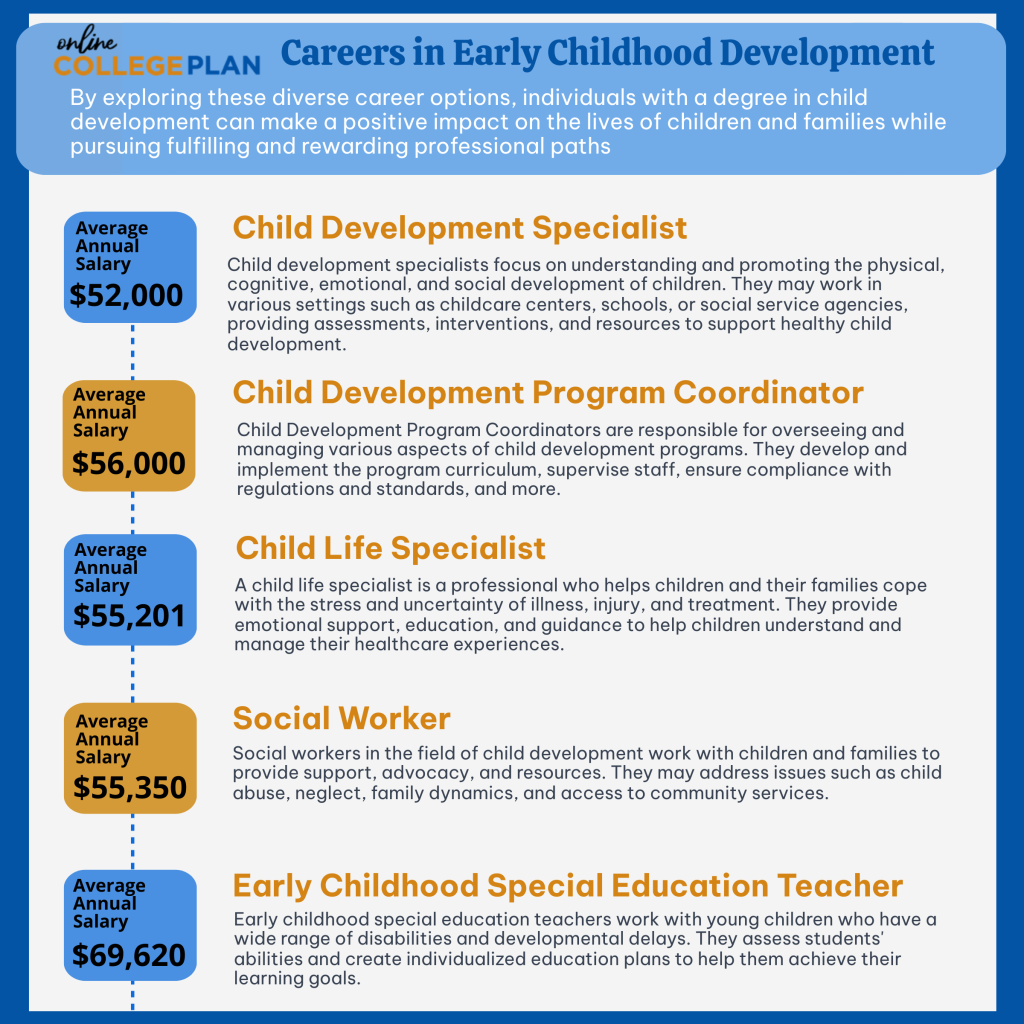
Top 20 Online Child Development Degrees Methodology
We looked at dozens of accredited colleges and universities that offer online child development degrees and related programs. To determine our final list of schools, we examined retention rates, graduation rates, student-to-faculty ratios, and undergraduate tuition. We then used that information to develop our list of the 20 best online schools for child development. In the case of a tie, schools were given a higher ranking if their tuition was lower. Please note that the listed tuition is based on in-state undergraduate costs per academic year. The tuition for online and graduate students may differ. Here’s how we broke it down:
Undergraduate Tuition/Fees
- Less than $10,000/year- 3 Points
- $10,001-$20,000/year- 2 Points
- More than $20,000/year- 1 Point
Freshman Retention Rate
- Less than 50%- 1 Point
- More than 50%- 3 Points
Graduation Rate
- 50% or Greater- 3 Points
- 25%-49%- 2 Points
- Less than 25%- 1 Point
Student-to-Faculty Ratio
- 15:1 and under- 3 Points
- 16:1 to 20:1- 2 Points
- More than 20:1- 1 Point
| School | Tuition | FreshmanRetention Rate | Graduation Rate | Student to Faculty Ratio |
| University of North Florida | $6,389 | 80% | 68% | 19:1 |
| University of South Florida | $6,410 | 90% | 74% | 22:1 |
| Appalachian State University | $7,450 | 83% | 75% | 16:1 |
| Missouri State University- Springfield | $8,604 | 76% | 58% | 19:1 |
| West Virginia University | $9,360 | 79% | 62% | 17:1 |
| University of Nebraska-Lincoln | $9,872 | 82% | 65% | 16:1 |
| North Dakota State University | $10,992 | 75% | 63% | 17:1 |
| Texas Tech University | $11,852 | 86% | 64% | 21:1 |
| The University of Alabama | $11,940 | 87% | 73% | 19:1 |
| University of Washington-Seattle | $12,242 | 94% | 84% | 21:1 |
| Oregon State University | $12,664 | 87% | 70% | 19:1 |
| Washington State University | $12,701 | 81% | 62% | 15:1 |
| Colorado State University-Fort Collins | $12,874 | 86% | 67% | 17:1 |
| Central Michigan University | $13,650 | 72% | 62% | 17:1 |
| University of Minnesota-Twin Cities | $15,859 | 90% | 84% | 16:1 |
| University of Massachusetts Amherst | $16,952 | 90% | 83% | 18:1 |
| Pennsylvania State University | $19,835 | 91% | 83% | 15:1 |
| Fresno Pacific University | $34,188 | 75% | 50% | 10:1 |
| Point Loma Nazarene University | $41,100 | 85% | 76% | 13:1 |
| University of La Verne | $47,000 | 77% | 63% | 11:1 |
Additional Sources:
